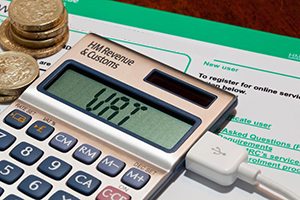Dipping oil prices are forcing Gulf State leaders to bury their differences over a controversial move to introduce VAT.
The leaders of the states have argued for years about bringing in the tax on the sale of goods and services.
Two main reasons have stopped them to date.
They did not need the money due to gushing oil revenues and fears that VAT would damage their image as a good place to do business.
Despite pressure from the International Monetary Fund and the World Bank, so far, the states have resisted imposing the tax.
However, all is about to change as the price of oil has plunged from $100 a barrel to around $50 and severely exposed the economies of oil producers reliant on the income to fund infrastructure and growth.
Stumbling blocks
Now, the Gulf States see diversification of their economies as the way forward – and raising tax from VAT is seen as one way of replenishing their diminishing coffers.
The first step to imposing the tax is commissioning a legal team to work on a framework for bringing in a tax across all six states – Saudi Arabia, the United Arab Emirates, Qatar, Kuwait, Bahrain and Oman.
The green light to this move was signalled at a meeting of economic ministers and officials in Doha.
The legal team is tasked to deliver a draft framework by May.
The decision puts an end to years of squabbling between the states over how the tax would work, what goods and services would be taxed and the rate of tax.
No firm decisions were made by the officials, but the main stumbling blocks have been whether food and health services should have VAT applied.
Diversifying economies
The discussions have proceeded on and off since 2007, with each state jockeying for a better financial position.
Under-secretary at the UAE Ministry of Finance Younis Hajj al-Khoori has explained that the Gulf Co-operation Council was still discussing which sectors should be taxed.
He has also said that VAT will be a GCC wide tax, with each state applying the same rules and rate of tax – hinting that the rate will range somewhere between 3% and 5%.
The United Arab Emirates – specifically Dubai and Abu Dhabi – have worked hard to diversify their economies over recent years, with an emphasis on developing hubs for financial services and air travel for the Middle East.
